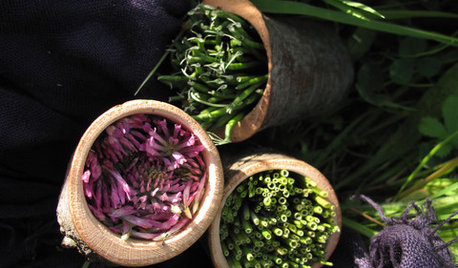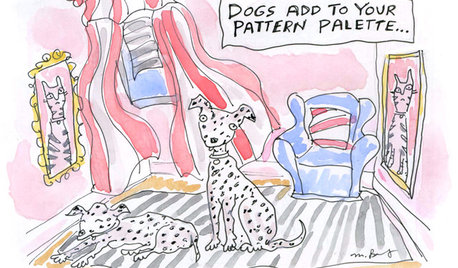Help! What's killing my honeybees
huemeister
19 years ago
Related Stories

EDIBLE GARDENSA Formerly Weedy Lot Now Brims With Edibles and Honeybees
Photographers transform their barren backyard into an oasis filled with fruit, vegetables, honey, eggs and more
Full Story
HOUSEPLANTS8 Houseplants You Can't Kill
They're forgiving and let you forget. Houseplants don't get any easier than this
Full Story
MOST POPULARThe Perfect Houseplant for People Who Kill Houseplants
If you can fill a jar with water, you can keep golden pothos vine happy — and it will pay you back with cleaner air and a greener home
Full Story
EARTH DAYHow to Help Your Town’s Beneficial Birds and Bugs
Make a habitat using local materials to provide a home to the creatures that help our gardens
Full Story
PETSHow to Help Your Dog Be a Good Neighbor
Good fences certainly help, but be sure to introduce your pup to the neighbors and check in from time to time
Full Story
FUN HOUZZDecorated Houses Help Save a Detroit Neighborhood
Art's a start for an inner-city community working to stave off urban blight and kindle a renaissance
Full Story
MOST POPULAR7 Ways to Design Your Kitchen to Help You Lose Weight
In his new book, Slim by Design, eating-behavior expert Brian Wansink shows us how to get our kitchens working better
Full Story
REMODELING GUIDESWisdom to Help Your Relationship Survive a Remodel
Spend less time patching up partnerships and more time spackling and sanding with this insight from a Houzz remodeling survey
Full Story
MOVINGRelocating Help: 8 Tips for a Happier Long-Distance Move
Trash bags, houseplants and a good cry all have their role when it comes to this major life change
Full Story
8 Ways Dogs Help You Design
Need to shake up a room, find a couch or go paperless? Here are some ideas to chew on
Full StorySponsored






pennsylvania_pete
ccrb1
Related Professionals
Fort Lee Landscape Architects & Landscape Designers · Rancho Cordova Landscape Architects & Landscape Designers · Wakefield Landscape Contractors · Blue Springs Landscape Contractors · Elkridge Landscape Contractors · Garland Landscape Contractors · Holtsville Landscape Contractors · Homewood Landscape Contractors · Lewisville Landscape Contractors · Lynchburg Landscape Contractors · Lyndhurst Landscape Contractors · Mequon Landscape Contractors · Plymouth Landscape Contractors · Rockville Landscape Contractors · Brentwood Los Angeles Outdoor Lighting & Audio Visual Systemspennsylvania_pete
txbeeguy
lancelotcq2
mamamia
bandit_tx